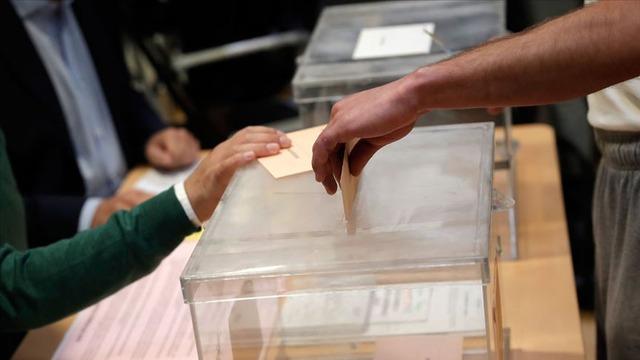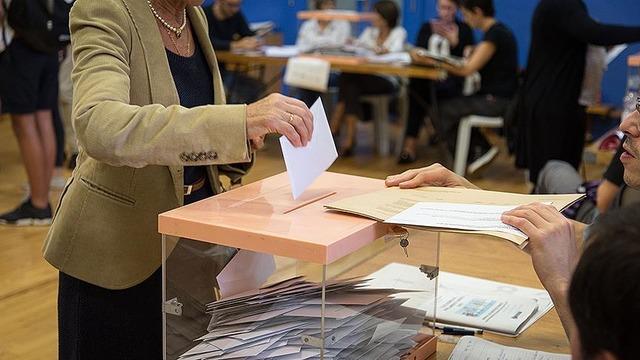In the early general elections held in Spain, with 96 percent of the ballot boxes opened, according to official figures, both the ruling left and the opposition right political parties could not achieve a result that would form the parliamentary majority and form the government.
According to the figures given by the Ministry of Interior, the political party that won the most deputies in the 350-seat parliament, according to the opening rate of 96 percent of the ballot boxes, was the main opposition right-wing People’s Party (PP), with 136.
The PP’s only option for a possible government was to form a coalition with the far-right Vox party.
However, Vox and PP combined remained at 169, failing to reach the 176 parliamentary majority required for a vote of confidence.
The number of deputies of the far-right Vox, which was 52 in the last elections, decreased to 33 in these elections.
Although Alberto Nunez Feijoo, who was elected as the chairman of the PP about a year ago, increased the number of deputies of his party by 47 and ensured that the first party came out of the election, it seems very unlikely that he will receive support from other political groups in the parliament other than Vox.
The ruling left coalition, which proved wrong in the polls that did not give it a chance in these elections, increased its votes, albeit slightly. But it still lags behind the parliamentary majority.
Sumar party, which was formed from the alliance of left parties as an alternative to the Socialist Workers Party (PSOE) 122 and its junior partner Unidas Podemos, which has been in power with a minority in the parliament for the last 3.5 years, won 31 deputies.
The total number of MPs of PSOE and Sumar remained at 153.

While PSOE and Sumar have described each other as “natural coalition partners” throughout the election campaign, if the separatist Basque and Catalan political parties (EH Bildu, PNV, ERC, JxCAT) support from outside, there is a possibility that a government will be formed and current Prime Minister Pedro Sanchez will continue in this position for another 4 years.
According to the political calendar in the country, the parliament and senate are expected to open on August 17.
On the other hand, the turnout rate in the elections remained at the level of 70 percent.
According to the data announced by the Ministry of Interior, the distribution of deputies in the 350-seat parliament was as follows: PP 136, PSOE 122, Vox 33, Sumar 31, Catalonia Republican Left (ERC) 7, Union for Catalonia (JxCAT) 7, EH Bildu 6 operating in the Basque region, Basque Nationalist Party (PNV) 5, others 3.

Distribution of 208 seats in the Senate: PP 109, PSOE 84, Left alliance 8, Basque Nationalist Party 4, others 3.
According to the general elections held on November 10, 2019 in Spain, the distribution of deputies in the 350-seat parliament was as follows: PSOE 120, PP 89, Vox 52, Unidas Podemos 26, Republican Left of Catalonia (ERC) 13, Citizens (C’s) 10, other political parties 40. (AA)
